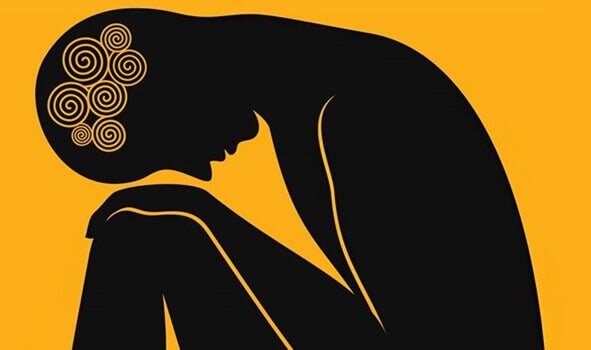Some myths about anxiety are still considered valid, but they do not benefit anyone who lives with this demon, with this entity that devours our calm and vital balance, nobody chooses their own disorder, disease or black hole from which it is so difficult to get out. Exit if our environment is not favorable and if we continue to harbor misconceptions that are wrong or even harmful.
At this present moment, when social movements are constantly emerging, demanding rights or visibilizing recently relegated realities to a place of silence and repression, there is another that must not go unnoticed. Under the title “I did not choose my illness”, try to expose the situation that many people currently suffering from depression, bipolar disorder, post-traumatic stress disorder, anxiety disorders, etc. live. These are people who, in a way, are guilty and responsible when they have not chosen the suffering they cause.
- “Anxiety is part of human nature.
- But it captivates us when the possibility conflicts with reality and when the present becomes obsessive with the future.
- Kierkegaard?.
Giving voice to this movement is important. First, because a large part of the population still navigates the waters of absolute ignorance about what mental disorders or illnesses are, nor can we forget that the stigma and weight of prejudice add to ignorance itself.
None of this helps the person who is trying to figure out what is going on with them; In addition, in many cases, it is an obstacle to seeking help so they will say, in this way all that is achieved is to make this condition chronic until it causes maximum suffering, until it becomes totally disabling. None of this is permissible or acceptable. Therefore, something as simple as knowing, clarifying terms and making this kind of reality visible shapes more favorable environments.
Today, there are still many health professionals who maintain the idea that anxiety responds to a simple chemical imbalance in our brain. It must be said that this is a half-truth, or rather an incomplete approach that we cannot consider valid.
The reason? It is known that offering the patient a pharmacological treatment to regulate Serotonin production confers well-being, however, the drug alone does not allow a complete and lasting cure; in many cases, symptoms only subside while the medication is being maintained.
The idea that anxiety is only solved with chemistry is not always correct, we need more strategies that complement treatment.
This is another of the most common anxiety myths: to attribute genetic predisposition to all our problems, diseases and disorders. There may be an increased risk, a low probability, but never an absolute determination.
One of the most common mental illnesses is generalized anxiety disorder. The impact it has on a person’s life is immense, chaotic and exhausting. So, if someone close to this patient comments that this reality of suffering is their responsibility to “do things wrong,” it will further increase depression and reduce the desire for solutions.
First, remember that anxiety itself is part of human nature, however, sometimes certain environmental events, the environment, our past, our predisposition and the way we deal with and treat our reality will determine the greatest or least risk of developing this type of disorder.
This is undoubtedly another of the most recurrent myths about anxiety. There are those who think that anxiety is part of their own personality and therefore there is nothing that can be done, there will be no therapy or treatment that can address it. You think that’s it, period. He identifies anxiety as part of his being, as an emotion inherent in his personality.
Let’s change direction and take a more realistic, logical and optimistic view of anxiety and any other type of disorder, can we all integrate new styles of thinking, better manage our emotions, change our behaviors, our habits and even reprogram our brains to calm you down?down, improve your concentration?
Anxiety disorders do not resolve themselves as one who has the solution to a riddle: they must be treated. The word? It has several meanings to consider:
In short, deep relaxation helps, but you have to use other resources to achieve a complete and permanent recovery, we could say that we will need more strategies on this trip to find what really helps us, which will allow us to alleviate despair, erase fears. and manage our concerns more meaningfully.
In conclusion, the myths of anxiety help numb therapeutic work and normalize a disease that can be successfully treated, let’s not forget that anxiety is now considered an epidemic and has a higher incidence among young people, so it is necessary to implement preventive measures, to facilitate strategies to understand that the mind does not have to go faster than life.

